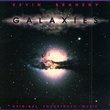| All Artists: Gustav Mahler, Daniel Barenboim, Berliner Staatskapelle, Staatskapelle Berlin Title: Mahler: Symphony No. 7 Members Wishing: 0 Total Copies: 0 Label: Warner Classics Original Release Date: 1/1/2006 Re-Release Date: 3/21/2006 Genre: Classical Style: Symphonies Number of Discs: 1 SwapaCD Credits: 1 UPC: 825646296323 |
Search - Gustav Mahler, Daniel Barenboim, Berliner Staatskapelle :: Mahler: Symphony No. 7
 | Gustav Mahler, Daniel Barenboim, Berliner Staatskapelle Mahler: Symphony No. 7 Genre: Classical
Barenboim?s Mahler Seventh joins the handful of elite versions of this work, perhaps the least-often performed among the composer?s symphonies. It?s an interpretation that never wallows in excess emotionalism, while avoidi... more » |
Larger Image |
CD DetailsSynopsis
Amazon.com Barenboim?s Mahler Seventh joins the handful of elite versions of this work, perhaps the least-often performed among the composer?s symphonies. It?s an interpretation that never wallows in excess emotionalism, while avoiding sterile objectivism. Throughout, Barenboim has his fine orchestra inflecting melodic phrases, hitting accents with vitality, and playing quiet sections with an intensity that pulls you into Mahler?s world instead of just waiting for the next big climax. He brings out often overlooked details without exaggerating them, and his feeling for color matches Mahler?s subtle orchestral shadings while never descending to the garish. A high point of the performance is the second Nachtmusik movement, taken at a flowing tempo that pulls the listener in. The central Scherzo too has zest and bite. The sound he evokes from the orchestra is a big part of the story. The strings? warmth and hushed pianissimos are beautiful, building from a strong bass foundation in the central European tradition Mahler himself exemplified. Mahlerians won?t want to miss this one. -- Dan Davis Similarly Requested CDs
|
CD ReviewsReally something special Daniel Graser | Wappingers Falls, New York United States | 04/06/2006 (5 out of 5 stars) "Mahler's Seventh symphony has grown on me for the last few years and it has now become my favorite of the Mahler symphonies. It is quite interesting that most casual listeners have reacted in a very perplexed way to this symphony whereas avid listeners and musicians have used it as their key to Mahler, Arnold Schoenberg for instance. Not only has Mahler mastered his integration of Wunderhorn song, march and symphony he has also expanded his orchestrational technique, truly creating a "world" of a symphony. Daniel Barenboim's new recording is an absolutely exquisite performance. The Berlin Staatskapelle really sounds magnificent, he has done some wonderful things with this orchestra. The orchestral color, blend, rhythmic accuracy and infallible intonation are all here. The sheer range of dynamics and color effects that Barenboim pulls out of this orchestra is breathtaking and the beautiful recorded sound gives it to us in vivid detail. Barenboim has stated in previous interviews that he didn't record earlier because he didn't really care for Mahler's sound world. However, recent performances with the Chicago symphony have shown him to be a very intuitive Mahler interpreter. Barenboim is not afraid to demand a pianissimo from the violins in the moonlight episode in the first movement nor demand a very vulgar character based sound from the horns in the second theme. The two night music movements are very beautiful and his finale is really exciting. This is a well paced, well thought out interpretation that can hold its own with the likes of Bernstein, Abbado and Tilson Thomas. Let us hope that this cycle he has started remains as consistent and masterful as Tilson Thomas' recent cycle. For the seventh, you definitely need this recording and Tilson Thomas' London Symphony recording. Highest Recommendation!" Some good moments but not enough to carry the argument 75 mi Larry VanDeSande | Mason, Michigan United States | 04/27/2007 (3 out of 5 stars) "This recording is typical of Daniel Barenboim -- highly personalized, overaccented and italicized. It takes the argument of Mahler's least accessible symphony and does everything but clarify it. Instead, Barenboim, as is his wont, prevails upon Mahler's score with his own personal stamp. Whether or not you can adjust to, and enjoy, the characteristic Barenboim overindulgence is the key to whether you believe this is a longlasting interpretation of the music you can return to over and over again. As my rating indicates, I do not believe this. Right from the opening bar lines, Barenboim makes clear his intent to oversway. With coarse, chopped playing from the low strings and italicized harping from the brass, the conductor lets you know his reading will be virulently interpreted. The sluggish second subject in the opening shows Barenboim's tendency to overdo contrasts, to follow highly inflected near mania with graniloquent slowdowns. His failure to elucidate the thick textures throughout shows he's not interested in delineating the complex scoring. So what does this conductor do well? When he is on better behavior, such as in the quieter development of the first movement, he allows the music to expand and breath using rubato and subtle inflections in tempo that enhance the listening experience. All too often, however, Barenboim is back to overinterpreting the music through his own often misguided ideas, as if to show he knows more about the music than Mahler. The Stattskapelle Berlin responds well to the conductor's requirements and gives him good, if sometimes raw, playing and execution. Recorded in the Philharmonie in Berlin during Feburary 2005, the sound is good but not outstanding for its period. I'd recommend this to unabashed fans of the conductor like those that gave it five star reviews here. Others looking for a good-sounding recording of the "Nachtmusik" symphony must look elsehwere for satisfaction. Minimalists that want to hear and understand the score should enjoy the Boulez reading on DG. Meanwhile, fans of the school of overinterpretation will probably find more enjoyment from recordings by either Bernstein or Thomas, clones that rarely limit thier indulgence. An alternate out of the maintstream is Horenstein, a conductor underapprecatiated in his day. For a reading between these extrmemes, I'd recommend Vaclac Neumann's recording with the Gewandhouse Orchestra Leipzig that you may be able to find through Amazon here or in Europe." Most satisfying overall version of any B. Guerrero | 11/21/2006 (5 out of 5 stars) "I agree. Barenboim's recording captures the implied atmosphere and inherant mystery of the first Nachtmusik, as well as the central "moonlit" episode in the first movement. The scherzo is spooky in a fleet and wispy manner. Yet, the last two movements make their effective transition into the brightness of daylight. As is more common these days, the second Nachtmusik is taken a bit quicker; clocking in well less than 13 minutes. That makes for a more natural transition into the finale. Did I mention that there's plenty of mandolin and guitar in the fourth movement as well? And as for the finale, Barenboim simply let's it rip. He's not quite as fast as Kondrashin was with it (who is?), but he pegs the climaxes just as well, if not better. My only complaint is that I would like for the allegro (fast) passages of the first movement to be a tad slower. To my mind, Boulez's 23 minutes is just right for fully digesting the first movement's fast harmonic rhythm (chord changes) and dense counterpoint. It's a very rich movement - sort of like a condensed, yet harmonically more modern rehash of the entire sixth symphony. Still, Barenboim gets the most out of that marvellous central "moonlit" episode - the heart of the movement, if there is one."
|

 Track Listings (5) - Disc #1
Track Listings (5) - Disc #1








